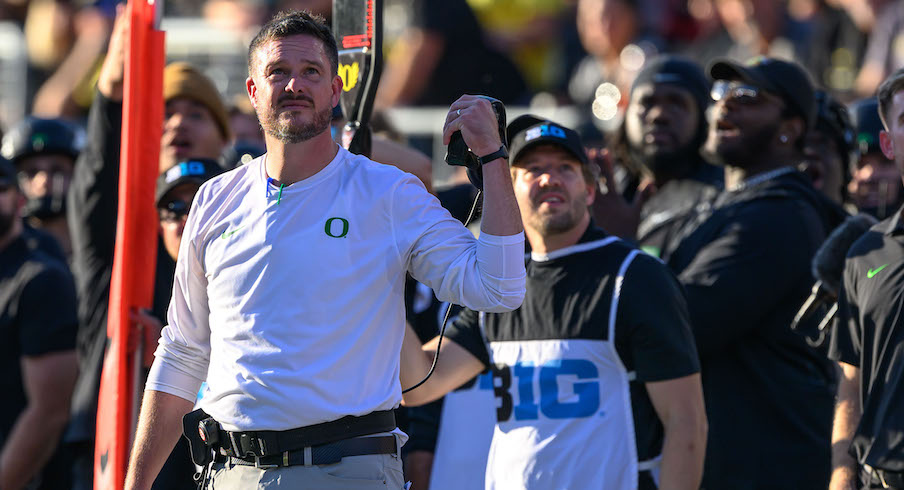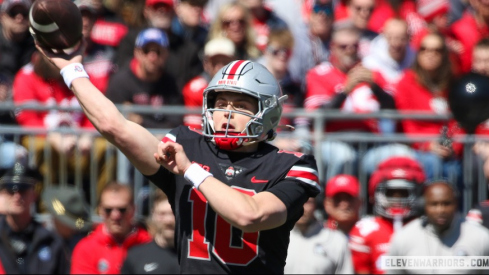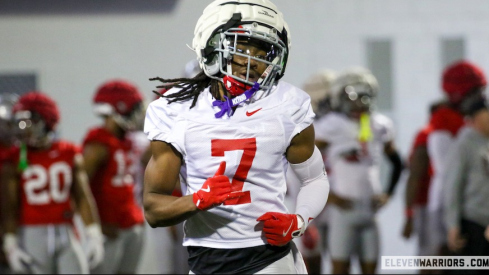The loophole Oregon exploited against Ohio State by putting 12 defenders on the field for a late-game play has now been closed.
The NCAA has issued a rules interpretation that will give offenses the option of resetting the clock to the pre-snap time if 12 or more defenders participate in a play in the final two minutes of a half, effective immediately.
Heres the rules interpretation handed down by the NCAA to close the loophole in the illegal substitution foul that Oregon used against Ohio State. pic.twitter.com/LydHk9ebKF
— Ralph D. Russo (@ralphDrussoATH) October 16, 2024
The rules interpretation comes just four days after Oregon’s win over Ohio State, in which the Ducks put a 12th defender into the game for the Buckeyes' second-to-last play. The extra defender helped force an incomplete pass for Ohio State, and while Oregon received a five-yard penalty for illegal participation, the penalty ultimately benefitted the Ducks as it took four valuable seconds off the clock while the five yards weren’t enough to get OSU into field goal range.
you NEED to watch how genius this is
— Warren Sharp (@SharpFootball) October 13, 2024
:10 left, Oregon calls a timeout
they intentionally add a 12th man late to ensure no big gain occurs
ball is snapped, no big gain
obviously its a penalty BUT
1) :04 ticks off clock
2) no big gain
:06 left
only time for 1 play
WIN pic.twitter.com/2MouQanBK8
Oregon coach Dan Lanning indicated that the move to put 12 defenders on the field was an intentional decision the Ducks drew up for that situation, knowing that it was more likely to help them than hurt them.
“There was a timeout before that. We spend an inordinate amount of time on situations. There are some situations that don't show up very often in college football, but this is one that obviously was something that we had worked on. So you could see the result,” Lanning said.
As a result, the NCAA has quickly moved to adjust how the penalty is assessed so that other defenses don’t follow Oregon’s lead and take an intentional penalty to waste time for the offense with the game on the line.
“Football is a very dynamic game,” NCAA Football Secretary Rules-Editor Steve Shaw said in a statement. “Occasionally there are specific situations where committing a penalty can give a team an advantage. A guiding principle of the NCAA Football Rules Committee is that there should be no benefit when a team commits a penalty. The goal of this in-season interpretation is to eliminate a potential clock advantage for committing a substitution foul and take away any gain for the defense if they violate the substitution rule.”


